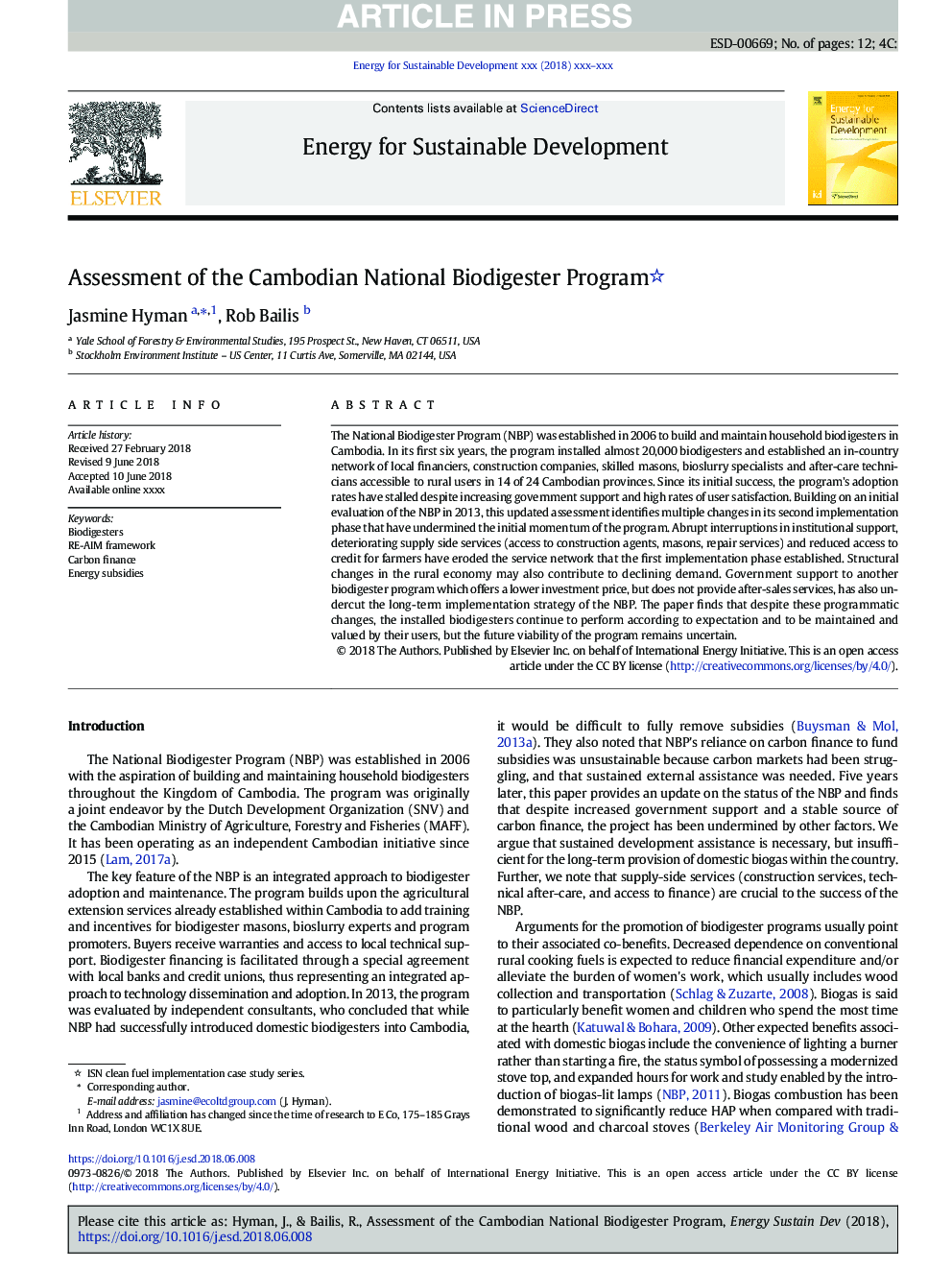| Article ID | Journal | Published Year | Pages | File Type |
|---|---|---|---|---|
| 7453448 | Energy for Sustainable Development | 2018 | 12 Pages |
Abstract
The National Biodigester Program (NBP) was established in 2006 to build and maintain household biodigesters in Cambodia. In its first six years, the program installed almost 20,000 biodigesters and established an in-country network of local financiers, construction companies, skilled masons, bioslurry specialists and after-care technicians accessible to rural users in 14 of 24 Cambodian provinces. Since its initial success, the program's adoption rates have stalled despite increasing government support and high rates of user satisfaction. Building on an initial evaluation of the NBP in 2013, this updated assessment identifies multiple changes in its second implementation phase that have undermined the initial momentum of the program. Abrupt interruptions in institutional support, deteriorating supply side services (access to construction agents, masons, repair services) and reduced access to credit for farmers have eroded the service network that the first implementation phase established. Structural changes in the rural economy may also contribute to declining demand. Government support to another biodigester program which offers a lower investment price, but does not provide after-sales services, has also undercut the long-term implementation strategy of the NBP. The paper finds that despite these programmatic changes, the installed biodigesters continue to perform according to expectation and to be maintained and valued by their users, but the future viability of the program remains uncertain.
Related Topics
Physical Sciences and Engineering
Energy
Energy (General)
Authors
Jasmine Hyman, Rob Bailis,
